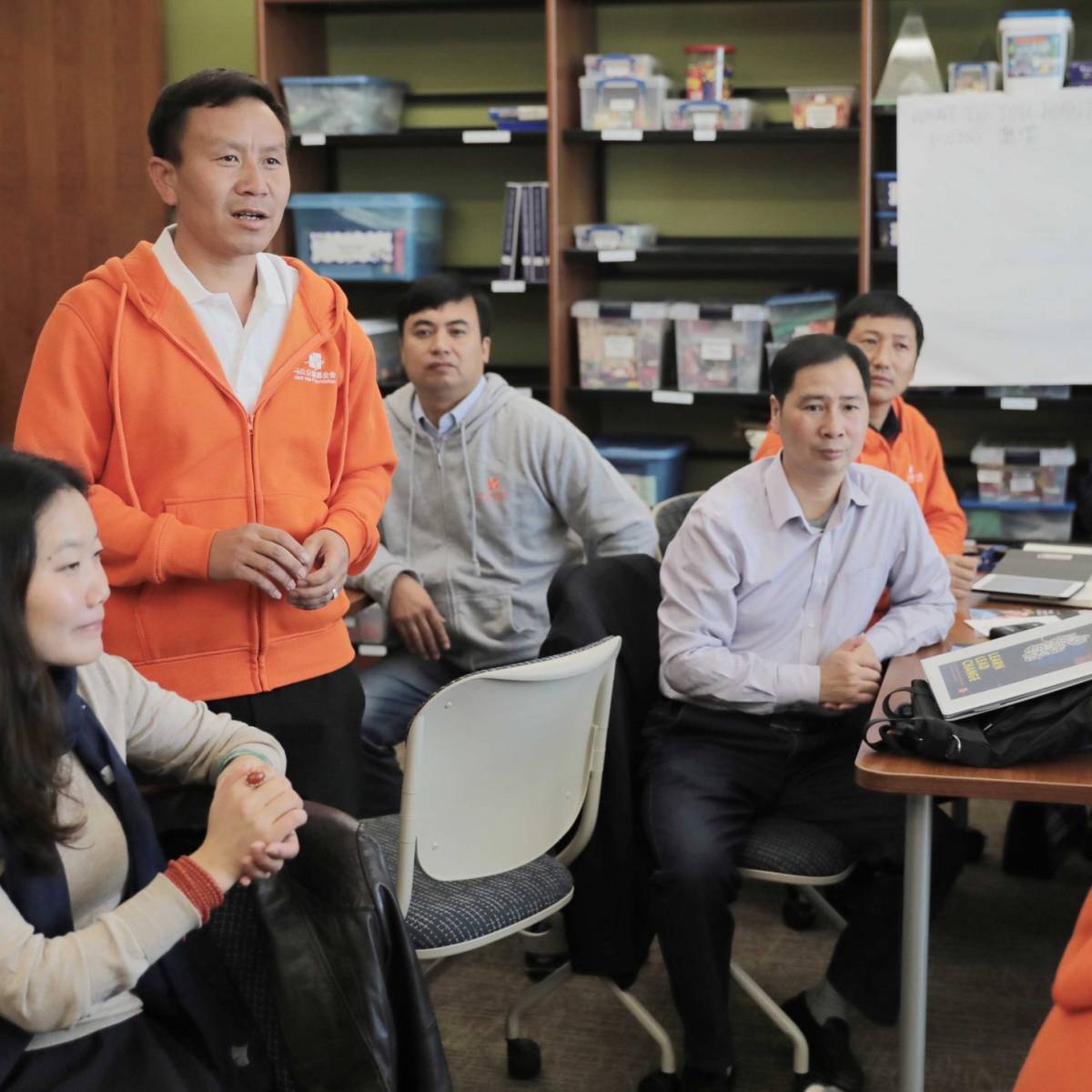


They say it takes a village to raise a child, and the Jack Ma Foundation is putting that saying into action every day through its Rural Headmaster Initiative.
In July 2016, the foundation pledged to donate RMB 200 million ($30 million) in the next 10 years to help train principals and educational leaders in remote villages and towns.
As part of the program, last month, 18 Chinese headmasters from rural areas from 10 provinces were selected to participate in a 10-day visiting program to the U.S. They witnessed firsthand how rural education is executed there and what American educators are doing to level the playing field for children in resource-scarce areas.
“It was an eye-opening experience,” said Liu Yongwu, who has been the headmaster of Changkeng Elementary School in Zhejiang Province for 14 years. “It was very impressive how well the principals knew their students. Not only are they familiar with the students’ academic skills, but also their individual personalities, family background as well as strengths and weaknesses.”
In China, over 90 million children are raised in rural villages and towns. According to data from the Ministry of Civil Affairs, about one-tenth are considered “left-behind” children—minors who have one or both parents working far away from home in the cities where opportunities are more abundant.
“Without their parents by their side, the people who will determine the future of these 90 million children are the 3 million-plus teachers,” Ma once said. “And for these teachers in rural areas, having a good headmaster is very crucial.”
Echoing Ma’s remark, Liu said a popular saying in the education circle is “before you become an educator, you must learn how to be a caretaker.”
“Teachers in rural areas often become step-in parents who look after the children daily needs from getting enough nutritious food to getting their homework done on time,” he explained.
As part of the program, these headmasters observed different classrooms in North Carolina and attended seminars at the University of North Carolina at Greensboro. They saw and learned from American teachers how to foster learning and collaboration among their students, such as encouraging students to speak up during group discussions and decorating their classrooms to resemble a home setting.
“The principals we met all knew the students extremely well, hence they are able to modify the curriculum to best suit the needs of individual students,” said Huang Lijun, a headmaster from Hunan Province. “Students with special needs also received ample attention and care.”
Moreover, the trip provided a rare chance for these top educators to share their insights and success stories with each other.
Such solidarity, said He Ye, an associate professor at the UNCG’s School of Education, is extremely important and valuable for these headmasters because not only does it provide a much-needed social network and a platform for them to exchange ideas, it is also a way for these school leaders to gain support.
He, a former teacher in Shanghai, said from her interactions with the Chinese principals she was impressed how well they understood that education is more than about getting high marks or stellar test scores, but about developing the child holistically.
“The objective of the program is not to see how many children we can send to graduate schools and get a PhD, but how to really ensure the well-being of the individual children so in turn, we can improve the well-being of the entire community,” He added.





